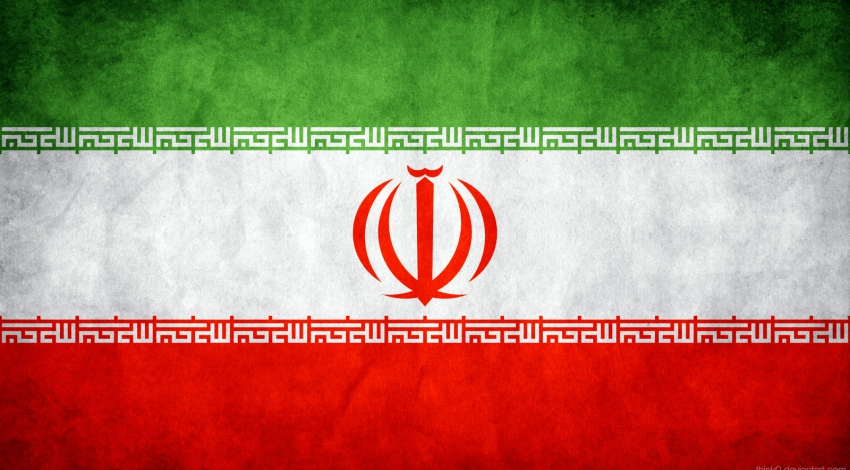(Reuters) - U.S. exports to�Iran�rose by nearly a third this year, chiefly because of grain sales, according to U.S. data released last week, despite the tightening of U.S. financial sanctions.
The jump to $199.5 million in the first eight months of 2012 from $150.8 million a year earlier, according to Census Bureau data, is surprising given Western efforts to isolate Iran economically because of its suspected pursuit of nuclear arms.
The increase masks a drop in the export of some humanitarian goods such as medicines, a decline U.S. exporters blame largely on the difficulty of getting paid by Iranian importers because of new U.S. financial sanctions.
But it also shows that goods such as milk products and medical equipment - whose sale to Iran is allowed with a Treasury Department export license - continue to flow despite the sanctions and the payments difficulties.
The United States, its European allies and other nations have imposed the sanctions to force Iran to halt its uranium enrichment program and address questions about its nuclear programs.
Iran denies it is seeking nuclear arms and says its atomic program is solely for peaceful purposes such as generating electricity and producing medical isotopes.
The economic penalties are one side of a two-pronged policy that also includes talks to seek a diplomatic solution. But that has been somewhat overshadowed this year by the possibility of Israeli or U.S. military strikes on Iran's nuclear facilities.
WITHOUT GRAIN SALES, EXPORTS WOULD HAVE FALLEN
The largest category of U.S. exports to Iran through August, 2012 was $89.2 million in sales of wheat and other grains. During the same 2011 period, the United States exported no wheat or such grains to Iran, though it sold $21 million of maize.
Without the wheat sales, U.S. exports to Iran would have declined through August overall, sharply in some cases.
Medicinal and pharmaceutical products, including those sold in bulk and those for animals, fell to $14.9 million from $26.7 million. Pulp and waste paper, a category that includes the raw material for diapers, sank to $17.4 million from $40.9 million.
However, exports rose in several other categories. Sales of milk products including cream, butter and other fats and oils derived from dairy more than doubled to $20.3 million from $7.8 million.
Medical, dental, surgical and other "electro-diagnostic apparatus" rose to $8 million from $4.7 million.
Although Iran can still import such goods, U.S. companies have complained for months that it is harder and harder to get paid because Iran's big banks have been blacklisted by the U.S. Treasury for alleged support for terrorism or involvement in the its alleged weapons of mass destruction programs.
While some Iranian banks are not blacklisted, these tend to be smaller institutions with limited access to foreign exchange.
The possibility one of these might obtain hard currency from a blacklisted Iranian institution has spooked foreign banks, who fear that they might be accused of having "indirectly" dealt with a designated Iranian bank, sanctions lawyers say.
DE FACTO HUMANITARIAN BANKING BLOCKADE?
As a result, groups ranging from religious-affiliated non-profits to liberal members of Congress to the U.S. Dairy Export Council have argued for ensuring that the banking sanctions do not choke off humanitarian trade.
"The Administration's sanctions against Iran have created a de-facto humanitarian banking blockade," said Kate Gould, legislative associate for Middle East policy at the Friends Committee on National Legislation.
"The U.S. Treasury Department's licenses for life-saving cancer treatment would be of no value to an Iranian patient who cannot access the licensed medication due to U.S. sanctions against financial institutions," she added.
Shawna Morris, vice president for trade policy at the National Milk Producers Federation & U.S. Dairy Export Council, said her group has long supported a humanitarian exemption.
"For the goals of that humanitarian exemption to be fulfilled, it must be clearly applied to not only the permission to sell the agricultural products covered by that exemption but also the related banking transactions needed to actually carry out the sale," she said in an emailed response to questions about her group's policy regarding humanitarian sales to Iran.
A Western diplomat said U.S. policy is to target the Iranian government rather than the people with sanctions, though he acknowledged that it is getting harder to make this case as the sanctions grow tighter.
The diplomat said the West did not want to find itself faced with a situation like that of Iraq under Saddam Hussein, who publicized the scarcity of medicines as a result of sanctions to score propaganda victories against Western nations.
"Iraq is not a good memory," said the diplomat, who spoke on condition of anonymity. "Since we have these vivid memories of how Saddam Hussein used it, we are being very careful not to give them (the Iranians) this weapon to use against us."
The Iran Project is not responsible for the content of quoted articles.
# Tags











